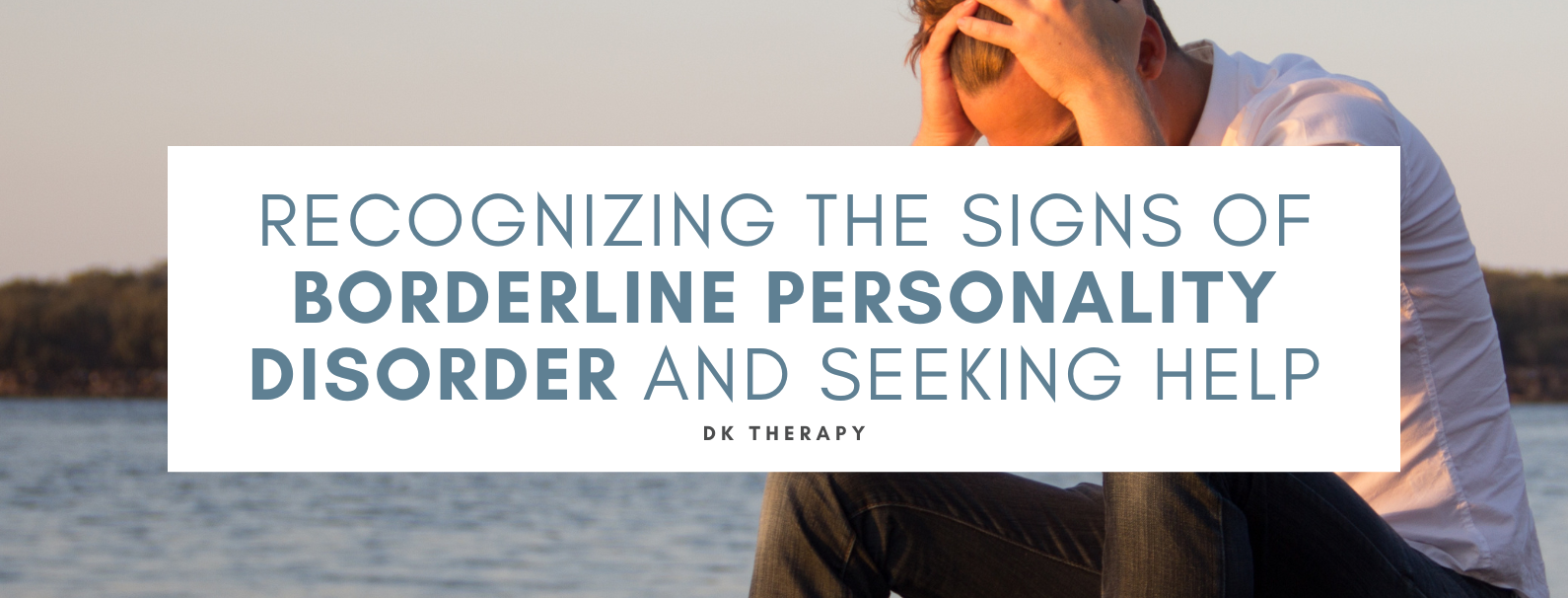
Borderline Personality Disorder (BPD) is a mental health condition that impacts a person’s emotions, relationships, and overall well-being. Though BPD can be complicated to live with, recognizing the signs early on and seeking help can improve the quality of life for those affected.
What is Borderline Personality Disorder?
 BPD presents with pervasive patterns of instability in moods, behavior, self-image, and relationships. People with Borderline Personality Disorder tend to experience episodes of intense anger, anxiety, or depression, which usually lasts a few hours to a few days. These mood swings can lead to trouble maintaining stable relationships, connecting with one’s sense of self, and coping with daily stresses.
BPD presents with pervasive patterns of instability in moods, behavior, self-image, and relationships. People with Borderline Personality Disorder tend to experience episodes of intense anger, anxiety, or depression, which usually lasts a few hours to a few days. These mood swings can lead to trouble maintaining stable relationships, connecting with one’s sense of self, and coping with daily stresses.
The exact cause of BPD has not been fully determined, but it likely arises from genetic, environmental, and social factors. Individuals who have experienced trauma or abuse in childhood are more likely to develop BPD as well. However, not all individuals with Borderline Personality Disorder have a history of trauma.
Recognizing the Signs of Borderline Personality Disorder
The signs of BPD vary, and they often overlap with those of other mental health conditions. However, there are a few hallmark symptoms that can help in identifying Borderline Personality Disorder.
- Intense and Unstable Emotions: People with BPD experience extreme emotional reactions at times. They may be elated one moment and deeply depressed or angry the next. These mood swings are often intense and can occur without any clear reason.
- Fear of Abandonment: Fear of abandonment is common in individuals with BPD. This can manifest in desperate efforts to avoid being left alone, even when there’s no realistic threat.
- Unstable Relationships: People with BPD can experience relationships that are intense but unstable. They may move back and forth between idealizing someone, then devaluing them when they feel hurt or rejected. All-or-nothing thinking like this can create strained relationships with family members, friends, and partners.
- Distorted Self-Image: An individual with BPD may have a changing self-image, where they feel good about themselves one day and worthless the next.
- Impulsive and Risky Behaviors: Impulsive actions such as reckless driving, substance abuse, unsafe sex, or overspending can be common in those with BPD.
- Constant Feelings of Emptiness: Many individuals with BPD feel a deep sense of emptiness or a void in their lives.
- Self-Harming or Suicidal Behavior: In extreme cases, self-harming behaviors may occur, especially in response to stress or feelings of abandonment.
How to Get Support
If you or someone you know is experiencing symptoms of Borderline Personality Disorder, it’s important to seek help. BPD is a treatable condition, and many individuals go on to live stable lives with the right interventions. Rather than suffering in silence, try the following strategies:
Contacting a Mental Health Professional
The first step in seeking help is consulting a mental health professional, such as a psychologist or psychiatrist. A full assessment can help determine whether BPD or another mental health condition is present.
Psychotherapy
The most effective treatment for BPD is psychotherapy, especially what’s known as Dialectical Behavior Therapy (DBT). DBT is a therapy type designed to help individuals manage their emotions and build stronger coping skills.
Medication
Medications may be prescribed to treat the symptoms of BPD such as anxiety, depression, or impulsivity.
Support Groups
Group therapy or support groups can be an invaluable resource for those with BPD and their loved ones.
Borderline Personality Disorder is an often misunderstood condition, but with early identification and intervention, individuals with BPD can lead happy, fulfilling lives. Therapy, medication, and a strong support system can make a significant difference in managing the challenges of BPD. Remember, though, recognizing the signs and seeking help is the first step toward healing.
If you’re struggling and you’d like to work with a dedicated counselor, contact DK Therapy and schedule an appointment with our office.




